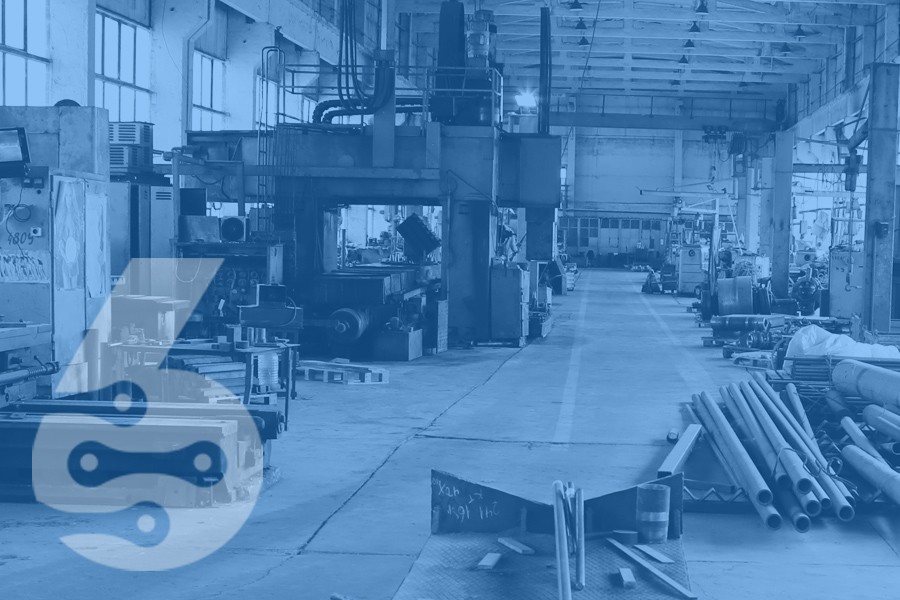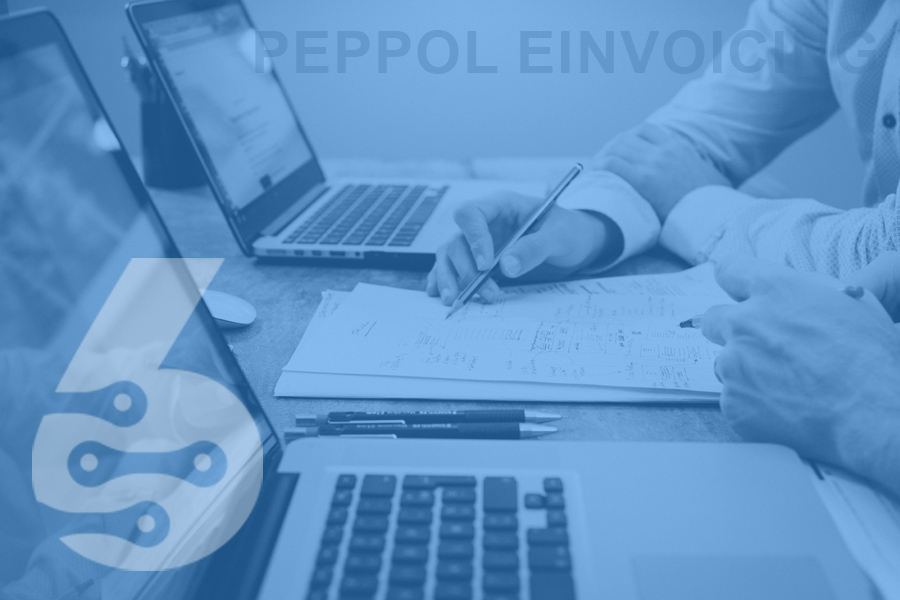Small and Medium Business (SMB)
Why do SMBs need an ERP?
Manage all your data and integrate with your business
There are many ways how to improve your business. One of the easiest ways is to get insights and data around everything you do in your company. Especially SMBs start with first understanding the customers, so the CRM is a central piece of every SMB ERP System.
For companies to grow sustainably, it is essential to have the same possibilities as large enterprises. A sound ERP system will integrate with many aspects like Accounting, Proposals, Estimates, Task Management, Invoicing, Asset Management, Project Management, Warehouse/Inventory Management, and many more. The challenge is also that every SMB has its way of working. A good ERP solution will fit into the company and doesn't force a company to adapt to a monolithic ERP system.
Complete CRM Integration
SIX ERP has a complete CRM system. A CRM system enables you to track customer interactions throughout the company - from prospect to invoice.
Complete solution at a low cost
You don't need to pay per user or module. SIX ERP enables your SMB to get all the advantages of an enterprise-grade ERP solution without the extra costs.
Easy to operate
Our managed ERP service ensures that you never have to deal with maintenance, updates, servers, or anything else. We make sure it runs!
“ The most customizable solution we found replacing our legacy CRM solution we worked with for too long. ”

Ludomil Lakov
Director of Sales | CANTEKA simple fully managed ERP for SMBs
An ERP that builds around the way your business works with all the modules you need to grow
The only ERP solution you need as an SMB
All modules for your growth - without limitations
ERP systems for SMBs can be expensive and also very complex at times. We simplified the whole system in many ways - we even created SIX ERP because all available ERPs were too complicated.
You get access to all modules with unlimited users, and we also made sure that everything is nicely connected, so you never need to worry about data integration, module connections, or anything else.
We even manage the system for you, so all the IT work is handled by our professionals who know how to maintain and update to ensure a smooth operation.
- No Module Limits
- No User Limits
- Fully managed ERP
Start with a CRM and extend it as you need
Every business is built around customers, so should you.
At the heart of every SMB, there is a customer. SIX ERP tracks the interactions with your leads, manages proposals, and even client invoicing. The CRM is also integrated with other aspects of your SMB ERP, which helps you keep your costs low by automating accounting, invoicing, and even topics like inventory management.
We integrated every module with the CRM, so when you grow, need custom solutions, or decide to implement some other platforms like eCommerce, it will help you stay on top of your challenges.
- Full CRM System
- All Modules are integrated with the CRM
- Easy Expansion and Extension
Don't worry about the IT part
Our fully managed ERP service takes care
Hosting, servers, updates, maintenance, backups, and many more topics are needed to enable a secure and smooth operation of an ERP.
We know that ERPs are crucial for companies, and this is why we give every SMB enterprise-grade service when it comes to managing the IT environment. You always get the latest updates, you don't need to control the servers, and more to entirely focus on running your business, interacting with your customers, and thinking about expanding in the future.
- Full service and easy operation
- Data security and business continuity
- You don't need any internal IT
Interesting Blog Articles

A Step-by-Step Guide to Planning Your ERP Implementation
Are you considering implementing an ERP system for your business? If so, you're in luck! This step-by-step guide will walk you through everything you need to do to prepare for your ERP implementation. We'll cover everything from choosing the right vendor to planning your project timeline. So whether you're just...
Managing the Manufacturing Process in ERPs
Enterprise Resource Planning (ERP) systems are integrated software solutions that help businesses manage the vital components of their operations, including product development, Manufacturing, supply chain, shipping and logistics, customer relationship management (CRM), and finance. An ERP system consolidates all of these business functions into a single, comprehensive software solution that can...
Guide to PEPPOL e-Invoicing
PEPPOL is more than an e-invoicing standard: it is a way to streamline global trade. Its adoption enables companies, large and small, to navigate the complexities of international transactions with ease and efficiency.It offers multiple benefits, such as the automation of e-invoicing, which minimizes errors and increases productivity. Especially for...
Want to learn more about ERPs for Small and Medium Size Businesses?
How to choose the best SME ERP?
When choosing an ERP system for a small or medium enterprise (SME), it is essential not to be swayed by the features of a system. Often, systems with more features are more expensive and overkill for an SME. It is necessary to carefully consider the needs of the business and select an ERP system that will address those needs without unnecessary features.
There are a few key factors to consider when choosing an ERP system for an SME:
- The size and complexity of the business
- The number of employees
- The type of business
- The geographical location of the business
- The level of integration required
Once these factors have been considered, it is possible to begin researching specific ERP systems that might be a good fit for the company. It is crucial to remember that not all ERP systems are created equal, and not all will be a good fit for every SME. Some systems are better suited for larger businesses, while others are more suitable for smaller companies.
When evaluating an ERP system, it is vital to ask the vendor questions about how it has been implemented in other businesses similar to the SME's size and type. It is also important to get references from other companies using the system. If another business has had a positive experience with the ERP system, the SME will likely have a good experience too.
Finally, it is important to consider the total cost of ownership when selecting an ERP system for an SME. The system's initial cost is often only a tiny part of the overall expense. Other costs to consider include implementation, support, training, and customization. By considering all of those factors, an SME can select the best ERP system for their specific needs.
Are ERP systems only for large corporations?
ERP systems are often considered overkill for smaller companies and beneficial only for large enterprises. However, this is not the case. ERP systems can benefit businesses of any size, including small and medium enterprises (SMEs). SMEs can often reap more benefits from an ERP system than larger businesses.
The main reason why SMEs can benefit more from an ERP system is that they are typically more nimble than larger businesses. Smaller businesses can generally adapt to change and implement new technologies more quickly. ERP systems can help SMEs automate their processes, improve efficiencies, and make better decisions.
Another reason why SMEs can benefit more from an ERP system is because they often have fewer legacy systems in place. Fewer legacy systems mean they can easily integrate an ERP system into their current infrastructure without paying attention to other surrounding systems. SMEs also have less data to manage than larger businesses, making it easier to manage and migrate to a new system.
In general, ERP systems are comprehensive systems that integrate all aspects of a company's operations into a single database. This can include everything from financials over manufacturing to HR and reporting.
For an SME, an ERP system can provide several benefits, including:
- A single source of truth for all data
- Integrated financials and accounting
- Centralized manufacturing planning
- Improved purchase, inventory, and production management
- Simplified management of workforce and time-tracking
An ERP system can be a valuable tool for an SME and help the business grow and increase efficiency.
What distinguishes ERPs for SMEs from corporate alternatives?
Several key differences exist between ERP systems meant for SMEs and those implied for larger businesses. The first difference is the size of the companies each system intends to serve. ERP systems for SMEs are typically smaller and more streamlined than those for large enterprises. Fewer options and less customizability make them easier to implement, manage and use.
Finally, SME ERP systems are typically less expensive than corporate ERP alternatives. They often have a lower initial cost as well as lower maintenance costs.
Overall, there are several differences between ERP systems meant for SMEs and large businesses. The size of the company, the level of integration required, and the cost vary between the two types of systems.
ERP benefits for SMEs and small businesses
ERP benefits for SMEs and small businesses
SMEs can benefit from using ERP systems in several ways. One of the main benefits is that it can help the business become more efficient. An ERP system can automate many of the labor-intensive processes currently executed manually. Automation can save business time and money.
ERP systems can also help SMEs make better decisions. SMEs can track trends and patterns more easily by having all their data in a single system. Data Management in an ERP is commonly referred to as Business intelligence. Business Intelligence (BI) can help them make smarter business decisions driven by data rather than opinion.
Additionally, ERP systems can help SMEs grow their business. They can provide a single source of truth for all data, which can help with financial planning, budgeting, and forecasting. Additionally, ERP systems can help SMEs centralize their manufacturing planning, leading to increased production efficiency.
These are just a few benefits SMEs can reap from using an ERP system.
Common challenges during an ERP implementation for SMEs
While there are many benefits to using an ERP system, there are also some challenges that SMEs may face during implementation. One of the main challenges is finding the right system for the business. With so many options on the market, it can be challenging to find an ERP system that fits the specific needs of an SME.
Another challenge that SMEs may face is data migration. When moving to a new ERP system, it's essential to migrate all data from the old system to the new one. Whereas data migration is one topic, understanding pre-existing data, and mapping those data to the ERP might constitute the more significant time consumer. Data mapping can be complex and time-consuming, especially for businesses with larger amounts of unstructured or cluttered data.
During implementation, businesses must manage change throughout the organization to ensure everyone is on board with the new system. It is regarded as best practice to involve as many stakeholders as possible, especially for companies resistant to change. Therefore, implementing proper change management is equally important to implementing the system itself.
Finally, SMEs must ensure they have the resources to implement and use an ERP system properly. Resources include trained staff who can operate the system and enough hardware and/or software to support it.
Without the proper resources, implementation can be complex and may not be successful, especially since businesses need to train their employees on how to use it.
Overall, there are some challenges that SMEs may face during ERP implementation. However, by being aware of these challenges and planning for them, businesses can increase the chances of a successful implementation.
Which modules do SMEs need from ERP systems?
The answer to this question depends on the specific needs of the business. However, some modules are commonly used by SMEs as they reflect the most used processes of every organization.
One of the most common modules is financial accounting. This module can help businesses track their finances and make better financial decisions. Additionally, many ERP systems have built-in reporting tools that can make financial reporting more straightforward.
Another standard module is inventory management or referred to as warehouse management (WMS). Tracking inventory can be helpful for businesses that need to keep track of their inventory levels. Additionally, some ERP systems come with features that can help enterprises to manage their supply chain.
Sales and customer relationship management (CRM) modules are also standard among SMEs. These modules can help businesses manage their customer relationships and sales processes. Additionally, CRM modules can provide valuable insights into customer behavior.
Manufacturing and supply chain management modules are also common among SMEs with production and material flows. These modules can help businesses manage their manufacturing processes and supply chains. Additionally, they can provide insights into production costs and inventory levels.
Managed cloud ERP as a solution for SMEs
One solution that SMEs can consider is managed cloud ERP. Managed cloud ERPs can help businesses offload the burden of managing their IT infrastructure, updates, servers, and other maintenance tasks. Additionally, managed cloud ERP providers can offer expertise and support that businesses may not have in-house.
Managed cloud services can be a good solution for businesses that do not have the resources to work their ERP system properly. Additionally, it can be a good option for companies focusing on their core operations and competencies.
Some benefits of managed cloud ERP include:
- Reduced IT costs: With managed cloud ERP, businesses don't need to invest in their own IT infrastructure. Additionally, they can save on maintenance and support costs.
- Scalability: Managed cloud ERP can be easily scaled up or down to meet the changing needs of the business.
- Flexibility: Managed cloud ERP can be customized to meet the business's specific needs.
- Support: Managed cloud ERP providers can offer support and expertise that businesses may not have in-house.
Which vendors have the best ERP solutions for SMBs?
Several vendors offer ERP solutions for SMBs. However, not all vendors are created equal. Some vendors may have more experience working with SMBs, while others may have more robust features.
Additionally, it's essential to consider the business's specific needs when selecting an ERP vendor. Not all vendors offer the same modules or features, so choosing a vendor that provides the right mix of features for the business is essential.
Some vendors that offer ERP solutions for SMBs include:
- SIX ERP: SIX is a next-generation managed cloud ERP system designed for SMBs and global corporations. It offers all modules, is fast, easy to use, and easy to expand with industry-leading low Total Cost of Ownership (TCO).
- SAP: SAP is a leading ERP vendor that offers several solutions for SMBs. However, SAP Business One is a popular solution for small businesses with a high cost per user.
- Oracle: Oracle offers ERP solutions for SMBs, including Oracle E-Business Suite and Oracle NetSuite.
- Microsoft Dynamics: Microsoft Dynamics offers several ERP solutions for SMBs, including Microsoft Dynamics 365 Business Central.
- Sage: Sage offers several ERP solutions for SMBs, including Sage 300 and Sage 300 Cloud Enterprise Management.
- Epicor: offers several ERP solutions for SMBs, including Epicor Eclipse and Epicor Prophet 21.
How do I choose the best ERP for me as an SME?
There is no one-size-fits-all answer to this question. The best ERP for an SME will depend on the specific needs and requirements of the business. However, there are a few factors that companies should consider when choosing an ERP system, including:
- Module requirements; Not all ERP systems offer the same modules and functionality. Choosing an ERP system that provides the business's modules is essential.
- Ease of use; The ERP system should be easy to use and understand. Intuitive interfaces help employees to use the system quickly.
- Implementation costs; Some ERP systems can be expensive to implement. It's essential to consider the implementation costs when choosing an ERP system.
- The total cost of ownership (TCO); It is essential to consider the TCO when choosing an ERP system. The TCO includes the upfront and ongoing maintenance, support, upgrades, and licensing costs.
- Scalability; The ERP system should be able to scale up or down to meet the changing needs of the business.
- Flexibility; The ERP system should be flexible enough to meet the business's specific needs.
- Support; The ERP vendor should offer support and expertise that businesses may not have in-house.
- Integration & Expansion; The ERP system should be able to integrate with other software applications and expand to meet the future needs of the business.
- Training; The vendor should provide on-site and online training to ERP system users and internal company administrators.
For which industries are there ERP systems for SMEs?
There are ERP systems for SMEs in a variety of industries. However, not all ERP systems are created equal. Some ERP systems are more suitable for certain industries than others.
Some industries that may benefit from an ERP system include:
- Manufacturing: A manufacturing ERP system can help businesses manage the production process, from raw materials to finished products.
- Retail: A retail ERP system can help businesses manage inventory, customers, orders, and point-of-sale (POS) transactions.
- Distribution & logistics: A distribution & logistics ERP system can help businesses manage the movement of goods from suppliers to customers.
- Construction: A construction ERP system can help businesses manage projects, from bidding to completion.
- Healthcare: A healthcare ERP system can help businesses manage patient records, claims processing, and scheduling.
- Wholesale: A wholesale ERP system can help businesses manage inventory, customers, orders, and invoicing.
- Non-profit: A non-profit ERP system can help businesses manage donors, volunteers, and finances.
Open-Source ERP as an Alternative for SMEs and small businesses?
Open-source ERP systems can be an excellent alternative for SMEs and small businesses.
Advantages of open-source ERP systems include:
- Lower costs: Open-source ERP systems are often free or very low-cost. This can save businesses a lot of money, particularly compared to the high costs of proprietary ERP systems.
- More customization options: Open-source ERP systems offer more customization options than proprietary ERP systems. This can be beneficial for businesses with specific needs requiring a tailor-made solution.
- Greater control: With open-source ERP, businesses have greater control over the software. They can make changes to the code as needed and are not reliant on the ERP vendor for updates and upgrades.
Disadvantages of Open-Source ERP Systems
However, there are several downsides to consider before making a decision.
- Internal IT costs: Many open-source ERP systems require businesses to have internal IT resources to install, maintain, update or customize the system. This can be a challenge for small businesses that may not have the resources to manage this.
- Unclear update schedules: It can be challenging to determine when updates will be released for open-source ERP systems. Vague schedules for bug fixing or system maintenance releases can cause uncertainty for businesses that need to plan for updates.
- No support: There is no guarantee of support from open-source ERP providers. This can be a challenge for businesses needing system updates or troubleshooting assistance.
Examples of Open Source ERP Systems
There are several different open-source ERP systems available. Some examples include:
- Odoo: Odoo is an all-in-one business software with CRM, eCommerce, and accounting features.
- ERPNext: ERPNext is an easy-to-use ERP system with a simple interface.
- Tryton: Tryton is a modular ERP system that includes accounting, inventory, and sales features.
- Florence: Florence is an open-source ERP system designed for small businesses.
- Openbravo: Openbravo is a web-based ERP system with comprehensive CRM and POS features.
On-Premise, Cloud, SaaS, or Managed Cloud?
When considering an ERP system, businesses must decide which deployment model is best for their needs. The four main options are on-premise, cloud, SaaS, and managed cloud.
- On-Premise: With on-premise ERP, businesses install the software on their servers. This option offers the most significant control and flexibility but can be the most expensive.
- Cloud: Cloud ERP systems are hosted by the ERP vendor. This option is less expensive than on-premise but offers less control.
- SaaS: SaaS ERP systems are offered as a subscription service. This option is typically the most affordable but offers the least control.
- Managed Cloud: With a managed cloud ERP, businesses can choose which features they want to use, and the vendor configures and manages the service on behalf of the client. The company needs no internal IT staff, and the ERP Vendor is responsible for providing security, updates, adoption, and implementation of features.
Hundreds of leading companies trust SIX
Want to see SIX for yourself?
Need help, have questions or want to get a free demo?
Please read our Privacy Policy on how we process personal data. We will never share your data!




